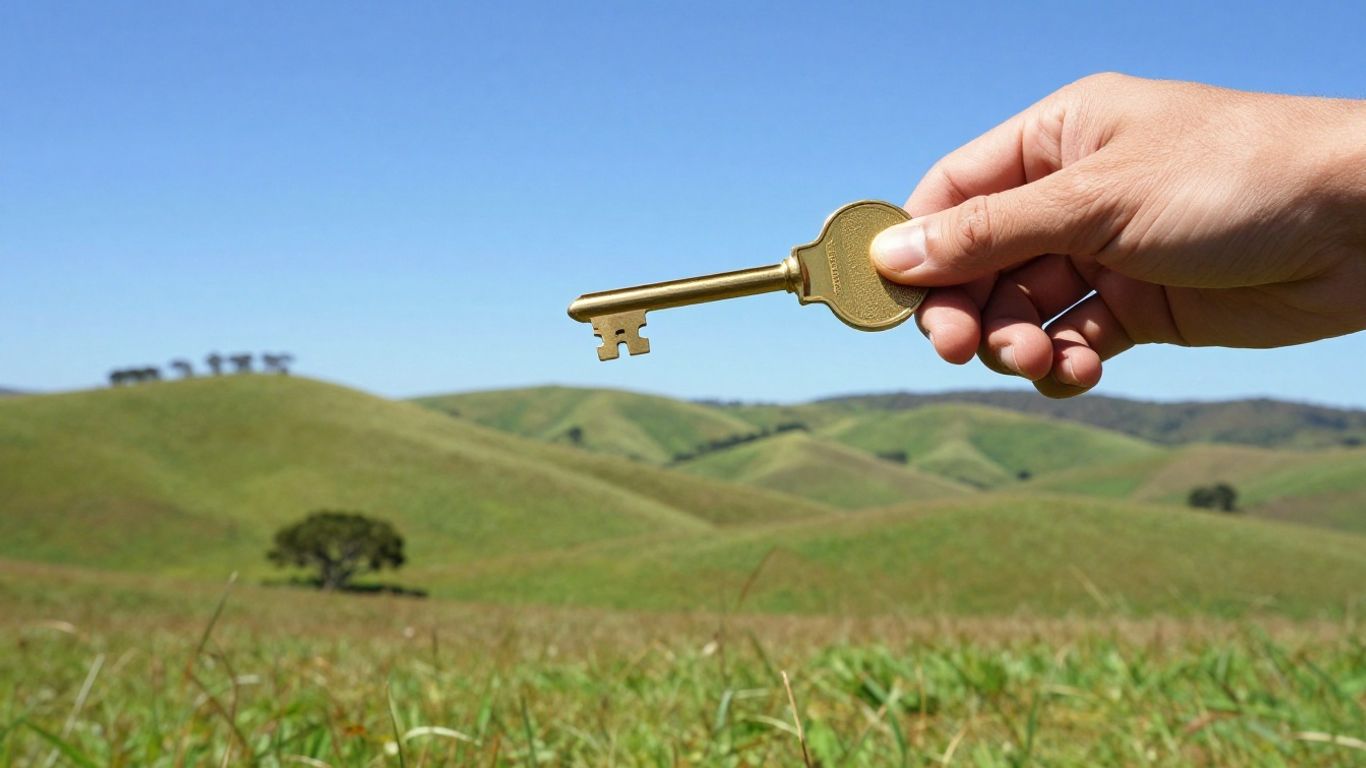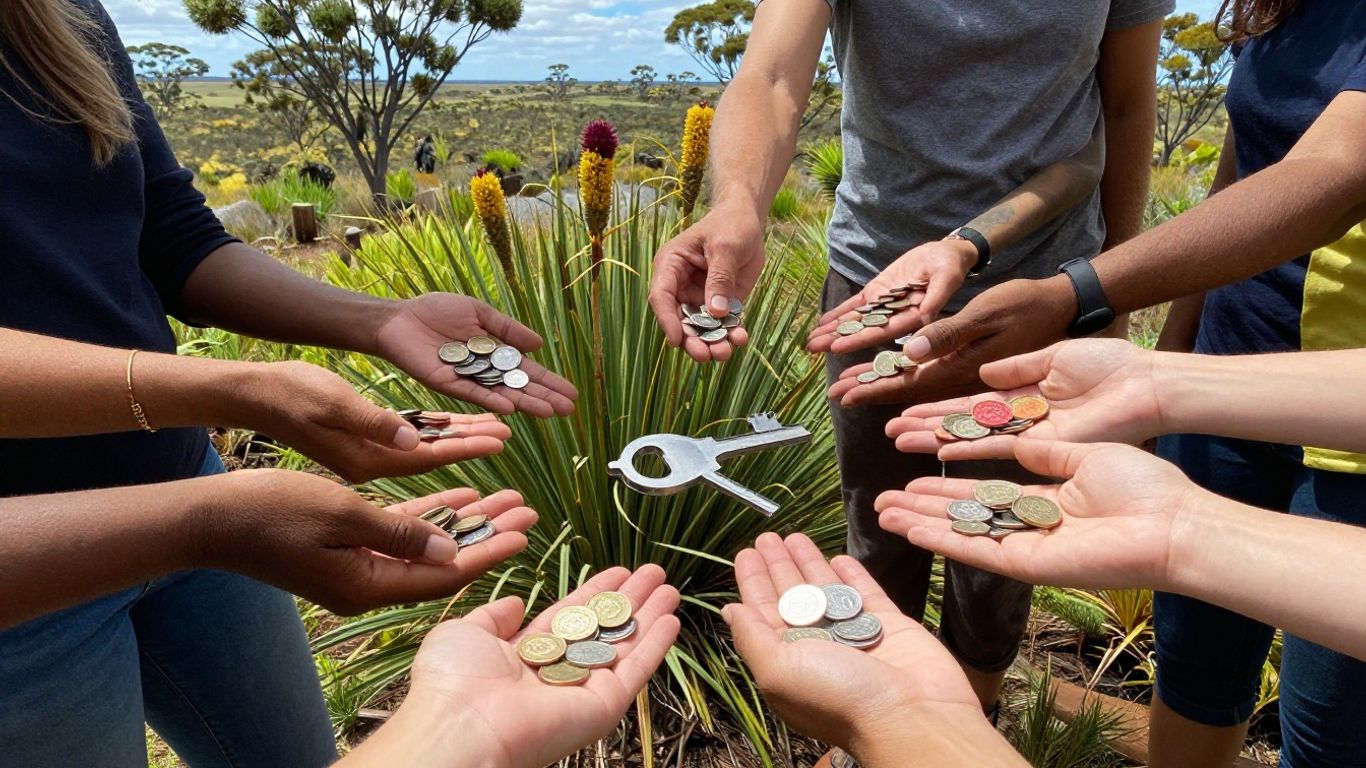G’day, future entrepreneurs! Thinking about starting something new in Australia in 2025? You’re in the right place. This article is your mate, helping you dig up some ripper business ideas in Australia. We’ll chat about finding out what folks really want, how to make your mark online, and some smart ways to get your venture off the ground. No worries, we’ll keep it simple and straightforward, so you can get cracking on your dream business.
Key Takeaways
- Chat with your customers a lot. Their thoughts are like gold, showing you what to do better or what new things to offer.
- Always be on the lookout for new tech. Things like AI or virtual reality can really shake up your business and keep you ahead.
- Think about selling your stuff overseas. There might be a big market out there just waiting for what you’ve got.
- Keep an eye on the rules and laws for businesses. They change, and you need to change with them to stay in the game.
- Don’t be afraid to try new things and get creative. Sometimes the best ideas come from just messing around and thinking outside the box.
Unearthing Fresh Business Opportunities Down Under

So, you’re keen to find some ripper business ideas for 2025, eh? It’s not just about stumbling onto something good; it’s about really digging in and understanding what folks need and what’s happening out there. Australia’s a big place with lots of different communities, so what works in Sydney might not fly in Perth. You’ve gotta be a bit of a detective, really.
Understanding Customer Needs Through Market Research
Alright, first things first: you can’t just guess what people want. You’ve gotta ask ’em, or at least look at what they’re doing. This means getting stuck into some proper market research. Think about it like this: if you’re planning a barbecue, you don’t just buy a heap of sausages and hope for the best, do you? You ask your mates what they like, if they’re vegetarian, all that jazz. Business is pretty similar.
- Surveys and Questionnaires: These are dead easy to set up online these days. Ask specific questions about problems people face, what they wish they had, or what they’d pay for.
- Focus Groups: Get a small bunch of your potential customers together and just chat. See what they talk about, what gets them excited, or what makes them groan. It’s a bit more informal but can give you some gold.
- Social Media Listening: People are always whinging or raving about stuff online. Pay attention to what’s being said in groups, on forums, or even in comments sections related to your potential industry. It’s like free feedback.
- Competitor Analysis: See what other businesses are doing, especially the successful ones. What are they selling? How are they selling it? What are their customers saying about them? You’re not copying, you’re learning.
It’s not enough to just have a good idea; you need to know if anyone actually wants to buy it. Spending a bit of time upfront figuring out what your potential customers are after can save you a whole lot of grief and money down the track. Don’t skip this bit, it’s crucial for any profitable business ideas you might have.
Networking for Local Insights
Now, you can do all the online research in the world, but nothing beats having a yarn with real people. Networking isn’t just about handing out business cards; it’s about building relationships and getting the inside scoop. Australia’s a pretty friendly place, and most people are happy to share a bit of their experience if you’re genuine.
- Industry Events: Look up local trade shows, conferences, or even small business meet-ups. Go along, listen to the speakers, and chat to people during the breaks. You’ll be surprised what you pick up.
- Local Business Groups: Many towns and suburbs have their own business associations. Joining one can connect you with other local entrepreneurs who know the lay of the land. They’ve probably faced similar challenges and can offer advice.
- Online Communities: Beyond just social media, there are often specific online forums or LinkedIn groups for different industries or regions. Get involved, ask questions, and offer your own thoughts. It’s a good way to get a feel for things without leaving your couch.
- Mentors: If you can find someone who’s already done what you’re trying to do, even better. A good mentor can give you practical advice and help you avoid common mistakes. Don’t be afraid to ask for a coffee and a chat.
Fostering Creativity and Innovation
Once you’ve got a handle on what people need and what’s happening in the market, it’s time to get a bit creative. You don’t have to invent the next big thing, but you do need to find a way to do something a bit differently or a bit better. Innovation isn’t just about fancy tech; it’s about finding smarter ways to solve problems.
- Brainstorming Sessions: Get a few people together – friends, family, anyone who’s willing to throw ideas around. No idea is too silly at this stage. Write everything down, even the wild ones. Sometimes the craziest ideas spark something brilliant.
- Look Outside Your Industry: Don’t just focus on what your direct competitors are doing. How do other industries solve similar problems? Can you adapt their methods to your own idea? Sometimes the best innovations come from unexpected places.
- Challenge Assumptions: Why is something done a certain way? Is there a reason, or is it just habit? Questioning the status quo can open up new possibilities. Maybe there’s a simpler, cheaper, or more effective way to do something.
- Embrace Failure (Small Ones): Not every idea will be a winner, and that’s okay. Try out small versions of your ideas, get feedback, and if it doesn’t work, learn from it and move on. It’s all part of the process.
Top Business Ventures for 2025 in Australia
Right, so you’re keen to get stuck into something new in 2025, eh? Australia’s got a fair few opportunities brewing, especially if you’re thinking about starting your own gig. It’s not just about having a good idea; it’s about knowing where the market’s headed and what folks are actually looking for. Let’s crack into some of the top contenders.
Selling Handcrafted Goods Online
There’s a real buzz around anything handmade these days. People are after unique stuff, things with a bit of soul, not just mass-produced junk. If you’ve got a knack for making things – whether it’s jewellery, pottery, custom artwork, or even knitted scarves – the online marketplace is your oyster. Setting up an online shop for your handcrafted items is easier than ever, and the demand for bespoke products is only growing. You can reach customers right across Australia, and even overseas, without needing a physical shopfront. Think about what makes your creations special. Is it the materials you use? Your unique design style? The story behind each piece? That’s what’ll hook people in.
Here’s a quick rundown of popular handcrafted items:
- Jewellery: Think unique designs, sustainable materials, or personalised pieces.
- Home Decor: Candles, ceramics, textile art, or custom furniture.
- Personal Accessories: Handbags, wallets, or bespoke clothing.
- Art & Prints: Original paintings, illustrations, or limited-edition prints.
- Gourmet Foods: Speciality jams, baked goods, or artisanal chocolates.
It’s not just about making something pretty; it’s about creating a brand that tells a story. People connect with authenticity, and that’s what handmade goods offer. Focus on quality, good photos, and clear descriptions, and you’ll be laughing.
Designing and Selling Your Own Products
Beyond just making things by hand, there’s a massive opportunity in designing your own products and then getting them manufactured. This could be anything from clothing lines to tech accessories, or even niche household items. The key here is identifying a gap in the market or finding a way to improve on existing products. Maybe you’ve got an idea for a better reusable coffee cup, or a more comfortable pet bed. The world’s your oyster. You’ll need to think about design, prototyping, and then finding reliable manufacturers, often overseas, to produce your goods at scale. It’s a bit more involved than just selling what you make, but the potential for growth is huge. Consider what problems you can solve for people with your designs. That’s where the real money is.
Leveraging Language Skills for Translation Services
Australia is a multicultural melting pot, and with that comes a constant need for translation services. If you’re fluent in another language, or even a few, you’re sitting on a goldmine. Businesses, government agencies, and even individuals often need documents translated, or interpreters for meetings and events. This isn’t just about translating words; it’s about understanding cultural nuances and making sure the message lands correctly. You could specialise in legal, medical, or technical translations, which often command higher rates. The beauty of this gig is that you can often do it from anywhere, with just a computer and an internet connection. It’s a flexible way to earn a decent crust, and the demand isn’t going anywhere. Sustainable business ideas often involve services that meet ongoing societal needs.
Here are some areas where translation services are in high demand:
- Legal Documents: Contracts, immigration papers, court transcripts.
- Medical Records: Patient histories, pharmaceutical information.
- Technical Manuals: Software guides, engineering specifications.
- Marketing Materials: Websites, brochures, advertising copy.
- Educational Content: Textbooks, e-learning modules.
Navigating the Australian Business Landscape
Starting a business in Australia means you gotta get a handle on how things work here. It’s not just about having a good idea; it’s about knowing the lay of the land, from what customers want to what the government says you can and can’t do. You need to be smart about it, always looking ahead.
Strategic SWOT Analysis for Local Markets
Before you jump in, you really should do a SWOT analysis. It’s a simple way to figure out where you stand. You look at your business’s Strengths, like what you’re good at, and its Weaknesses, where you might struggle. Then, you check out the Opportunities in the market, things you can take advantage of, and the Threats, stuff that could cause problems. This helps you make better decisions for the local Aussie market.
It’s like planning a road trip. You wouldn’t just hop in the car without checking the map, knowing your car’s limits, or seeing if there’s a storm coming. Same goes for business. You gotta know your vehicle, the roads, and the weather.
Adapting to Regulatory Changes
Rules and regulations in Australia can change, and you need to keep up. What was okay last year might not be this year. This isn’t just about avoiding fines; sometimes, a new rule can actually open up a new business opportunity. For example, if there’s a new push for sustainable practises, that could be a chance for you to offer eco-friendly products or services. Staying informed about these shifts is a big part of doing business here.
- Keep an eye on government websites for updates.
- Join industry groups; they often share news about changes.
- Talk to a business advisor who knows the local laws.
- Factor in potential changes when you’re planning long-term.
Exploring Global Market Potential
Even if you’re starting small in Australia, don’t forget about the rest of the world. Australian products and services are often well-regarded overseas. Think about whether your business could eventually sell to customers in other countries. This might mean looking at online sales or finding partners abroad. It’s a big step, but it can really grow your business. For more insights on expanding your reach, consider exploring profitable business opportunities that have a global appeal.
| Market | Potential Interest | Key Considerations |
|---|---|---|
| New Zealand | Similar culture, close proximity | Shipping costs, customs |
| Southeast Asia | Growing middle class, demand for quality | Cultural differences, logistics |
| Europe | High purchasing power, niche markets | Strict regulations, competition |
| North America | Large consumer base, diverse needs | Market saturation, time zones |
Embracing Digital Growth in Australia

Launching Your Own YouTube Channel
Starting a YouTube channel in Australia can be a real game-changer for your business. It’s not just about uploading a few videos; it’s about building a community and showing off what you do. Think about it: you can create how-to guides, behind-the-scenes peeks, or even just chat about your industry. People love seeing the real person behind the brand, and video is perfect for that. It’s a chance to connect with folks in a way that text just can’t manage. Plus, with a bit of effort, your videos can reach a massive audience, not just here in Australia but all over the world. Just make sure your content is good quality and actually helps or entertains your viewers.
It’s not enough to just put content out there; you need to make sure it’s something people actually want to watch. Think about what problems you can solve for your audience or what unique insights you can share. Consistency is key, too. Regular uploads keep your audience engaged and coming back for more.
Selling on Popular Online Marketplaces
Getting your products onto popular online marketplaces is a smart move for any Aussie business. Places like eBay Australia, Amazon Australia, and even local craft sites can put your stuff in front of heaps of potential customers you might not reach otherwise. It’s like having a shopfront in a massive, busy shopping centre, but without the huge rent.
Here’s why it works:
- Built-in audience: These platforms already have millions of users looking to buy things.
- Easy setup: Most marketplaces make it pretty straightforward to list your products.
- Trust factor: Customers often feel more secure buying from established platforms.
- Reduced marketing effort: The marketplace does a lot of the heavy lifting for getting eyes on your products.
It’s a great way to test the waters with new products or just get your brand out there. Just remember to factor in their fees when you’re pricing your goods.
Mastering E-commerce for Australian Consumers
Mastering e-commerce for Australian consumers means understanding what makes them tick online. It’s not just about having a website; it’s about making the whole buying process smooth and easy. Think about things like clear product descriptions, good photos, and a simple checkout. Australians appreciate transparency, so be upfront about shipping costs and delivery times. Offering local payment options, like Afterpay or Zip Pay, can also make a big difference.
Consider these points for your online store:
- Mobile-friendly design: Most people browse and buy on their phones these days.
- Fast loading times: Nobody likes waiting for a slow website.
- Clear return policies: This builds trust with your customers.
- Local customer support: Being able to talk to someone in Australia if there’s a problem is a big plus.
- Secure payment gateways: Customers need to feel safe when they’re putting in their card details.
For those looking to start a business in Australia, understanding these digital avenues is crucial. Profitable small business ideas often involve a strong online presence.
Innovative Approaches to Australian Entrepreneurship
Adopting Emerging Technologies
Alright, so if you’re looking to really make a splash in the Aussie business scene, you’ve gotta be on top of the tech game. We’re talking about things that are just starting to hit their stride, not yesterday’s news. Think about how you can use stuff like AI to make things easier, or maybe even blockchain for more secure transactions. It’s not just about having a fancy website anymore; it’s about using these tools to actually change how you do business.
- Look into AI-powered customer service chatbots to handle common queries.
- Explore blockchain for supply chain transparency, especially if you’re dealing with ethical sourcing.
- Consider augmented reality (AR) for product demonstrations, letting customers ‘try before they buy’ from home.
The businesses that are going to win in 2025 are the ones that aren’t afraid to try new things. It’s about being smart with technology, not just throwing money at the latest fad. Find what works for your specific idea and run with it.
Building a Strong Online Presence
Having a good online presence isn’t just a ‘nice to have’ anymore; it’s absolutely essential. People are looking for everything online these days, from local tradies to unique handmade goods. Your digital shopfront needs to be as inviting and functional as any physical one. This means more than just a basic website. You need to be where your customers are, whether that’s on social media, through search engines, or on specific online marketplaces. For example, if you’re selling products, getting your stuff listed on popular Australian platforms can make a huge difference. Australian business opportunities are often found online.
Capitalising on Niche Markets
Forget trying to be everything to everyone. The real gold is often found in serving a very specific group of people with a very specific need. Think about it: instead of selling general pet supplies, maybe you focus on organic, hypoallergenic dog food for breeds with sensitive stomachs. Or instead of just offering general accounting, you specialise in tax advice for freelance artists. When you go after a niche, you can become the go-to expert, and that builds trust and loyalty. It also makes your marketing efforts way more effective because you know exactly who you’re talking to.
| Niche Market Example | Target Audience | Unique Selling Proposition |
|---|---|---|
| Eco-friendly Baby Products | Environmentally-conscious parents | Sustainable, non-toxic, locally sourced |
| Gluten-Free Bakery | People with dietary restrictions | Delicious, safe, wide variety of baked goods |
| Mobile Bike Repair | Busy urban cyclists | Convenient, on-demand, expert service |
Key Strategies for Business Success in Australia
Listening to Customer Feedback
Alright, so you’ve got your business up and running, yeah? But how do you keep it humming along, especially in a place like Australia where things can change quicker than the weather? One of the biggest things you can do is actually listen to what your customers are saying. Seriously, it’s not just about getting good reviews; it’s about understanding what makes them tick, what they like, and more importantly, what they don’t.
You see, your customers are basically giving you a free consultation. They’re telling you what’s working and what’s not, often without even realising it. Ignoring that is like throwing money down the drain. It’s not just about fixing problems; it’s about finding new ways to make things better, to surprise them, and to keep them coming back for more. It’s how you stay ahead of the pack.
Here’s how you can really tune into your customers:
- Direct Surveys: Send out quick, easy surveys after a purchase or service. Keep ’em short and sweet, no one’s got time for a novel.
- Social Media Monitoring: Keep an eye on what people are saying about you online. Facebook, Instagram, even local forums – people are always chatting.
- Review Platforms: Sites like Google Reviews or Trustpilot are goldmines. Respond to everything, good or bad, and show you’re paying attention.
- Direct Conversations: Sometimes, just having a yarn with a customer in person or over the phone can give you the best insights. Ask open-ended questions.
- Feedback Forms: Have a simple form on your website or in your shop where people can drop suggestions or complaints anonymously if they prefer.
Securing Reliable Suppliers
Now, let’s talk about suppliers. You can have the best idea in the world, but if your supply chain is a bit dodgy, you’re in for a world of hurt. In Australia, where distances are huge and things can get a bit tricky with logistics, having suppliers you can count on is absolutely non-negotiable for any business. It’s like building a house on sand if your suppliers aren’t solid. You need partners, not just people who sell you stuff.
When you’re looking for suppliers, think about these points:
- Quality Control: Do they consistently deliver the goods you need, at the standard you expect? Don’t compromise on this.
- Reliability: Can they meet deadlines? What’s their track record for delivery times and consistency? Late deliveries can really mess up your schedule.
- Cost-Effectiveness: Are their prices fair and competitive? It’s not always about the cheapest, but about the best value for what you’re getting.
- Communication: Are they easy to get in touch with? Do they keep you in the loop if there are issues? Good communication saves a lot of headaches.
- Flexibility: Can they adapt if your needs change, or if there’s a sudden surge in demand? A bit of wiggle room is always good.
Developing Winning Advertising Ideas
Alright, you’ve got a great product, happy customers, and solid suppliers. But how do you get more people through the door, or clicking on your website? That’s where your advertising comes in. It’s not just about shouting the loudest; it’s about being smart, being seen, and making people actually want what you’re selling. For businesses looking to grow, diversifying your business is a smart move.
Here are some ideas to get your advertising humming:
- Know Your Audience: Who are you trying to reach? What do they care about? Tailor your message to them, not to everyone.
- Tell a Story: People connect with stories, not just facts and figures. How does your product or service make their life better? What’s the journey?
- Use Local Flavour: If you’re in Australia, use Australian slang, references, and humour. Make it relatable. People appreciate authenticity.
- Mix It Up: Don’t just stick to one type of advertising. Try social media ads, local newspaper spots, radio, even flyers in local cafes. See what sticks.
- Track Everything: How do you know if your ads are working? You track them! See which ones bring in the most customers, and then do more of that.
- Offer Something Special: A limited-time offer, a discount for new customers, or a freebie can really grab attention and get people to try you out.
Conclusion
So, that’s pretty much it for finding those golden business ideas in Australia for 2025. It’s all about looking around, seeing what people need, and then figuring out how you can help. We talked about everything from selling stuff you make yourself to getting into influencer marketing, and even flipping sneakers. No matter if you’re keen on graphic design, starting your own blog, or trying out dropshipping, the main thing is to be flexible, think outside the box, and keep an eye on what’s happening in the market. When you’re starting your business, remember you can use what you’re good at, keep things simple, and don’t forget about the power of working with others or even crowdfunding. Starting a business without a heap of cash isn’t just a pipe dream; it’s totally doable. So, go for it, take on the challenges, and let your business dreams take flight. The future of business is waiting, and you’re right there at the start of it. Good luck with your ventures in 2025!
Frequently Asked Questions
How do I find new business ideas for 2025?
Finding new business ideas for 2025 means looking closely at what people need and what’s missing in the market. You can do this by asking customers what they want, checking out what other businesses are doing, and keeping an eye on new trends.
What’s a SWOT analysis and why is it important?
A SWOT analysis helps you look at your business’s good points (Strengths), weak points (Weaknesses), chances to grow (Opportunities), and things that could cause problems (Threats). It’s like taking a full picture of your business to see where you stand.
Why should I care about customer feedback?
It’s super important to listen to what your customers say, both the good and the bad. Their feedback helps you make your products or services better and even come up with new things they might like.
How can new technologies help my business?
New technologies like AI (Artificial Intelligence) or VR (Virtual Reality) can really change how you do business. Using them can make your business more modern, efficient, and appealing to customers.
Should I think about selling my products overseas?
Yes, definitely! Thinking about selling your products or services to people outside Australia can open up huge new chances for your business to grow and make more money.
Why is it important to keep up with changing rules?
Rules and laws change all the time, so it’s vital to stay updated on what applies to your business. Knowing the rules helps you avoid problems and can even show you new ways to do things.





